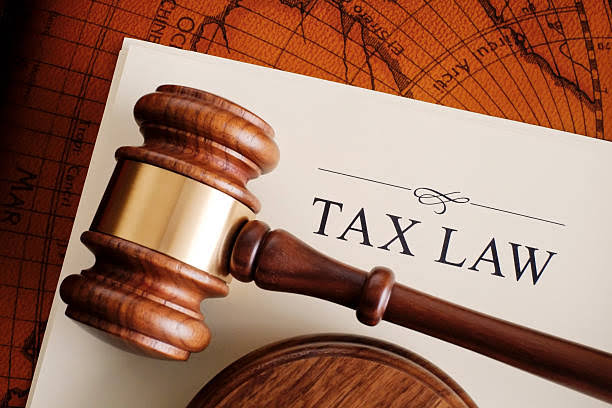
The ongoing tax reforms debate is good for Nigeria, however, care must be taken so that it does not degenerate to protests and bloodshed replica of the one that happened in Kenya.
Recall that in June this year (2024), thousands of Kenyans took to the streets to protest the legislation on tax increment in the country.
The Finance Bill introduced by the William Ruto administration proposed raising taxes on items such as bread, financial services, motor vehicles, and more before amended in the wake of the protests.
Even after items such as the VAT on bread were removed, the protests continued due to the underlying frustrations occasioned by bad governance and harsh economic conditions.
A report by the Kenya National Commission on Human Rights (KNCHR), says about 39 people were killed and 361 were injured “in relation to the protests countrywide”, between June 18 and July 1, 2024.
The report added that there had been 32 cases of “enforced or involuntary
disappearances,” why about 627 protesters were arrested.
TAX REFORM BILLS IN NIGERIA
In October 2024, the President of the Federal Republic of Nigeria, Bola Tinubu submitted four reform bills to the National Assembly for consideration, which he believes were potent enough to return the country back on sustainable growth.
Tinubu, in a letter sent to both chambers of the National Assembly, and read during their respective plenary sessions explained that the bills were crafted to align with his administration’s goals of economic transformation and inclusive growth.
The proposed bills include the Nigeria Tax Bill 2024, which aims to establish a comprehensive fiscal framework for tax regulation, the Tax Administration Bill, which seeks to provide a clear and concise legal structure for managing taxes in Nigeria to reduce disputes and enhance
efficiency, the Nigeria Revenue Service Establishment Bill, which is intended to repeal the Federal Inland Revenue Service Act and create the Nigeria Revenue Service (NRS), and the Joint Revenue Board Establishment Bill, which proposes the creation of a tax tribunal and a tax ombudsman to address tax-related matters.
The Chairman, Presidential Committee on Fiscal Policy and Tax Reforms, Taiwo Oyedele, while explaining the bills said “the Nigeria Tax Bill harmonises all the major taxes such as corporate income tax,
personal income tax, VAT etc, Nigeria Tax Administration Bill provides a framework for tax management covering taxpayer identification, registration, assessment, collection, enforcement, etc, Nigeria Revenue Service (Establishment) Bill seeks to replace the FIRS with the NRS to
perform a broader role of revenue administration in Nigeria and drive collaboration with subnational governments and MDAs, and the Joint Revenue Board (Establishment) Bill is to transform the JTB to JRB with an expanded mandate and enhanced role for cooperation and tax harmonisation.
“The bill also sets up the office of the tax ombudsman to protect taxpayers and advocate for tax simplification. Altogether, the bills offer a comprehensive overhaul of the nation’s tax framework to drive economic
growth, support Nigerian households, and position the country as a competitive economy within the comity of nations. These reforms reflect a commitment to equity, efficiency, and sustainable development”, he said.
IMPORTANCE OF THE BILLS
Speaking on the importance of the bills, Oyedele said they would cause changes to income tax laws that would attract remote work opportunities in the global business process outsourcing (BPO) sector, enabling Nigerian youths to thrive in the digital economy.
He said the bills would boost exports, adding that goods, services, and intellectual property exports will benefit from zero-rated VAT and other incentives to enhance Nigeria’s global trade competitiveness.
According to him, the bills would support small businesses, saying that tax exemptions, including 0% corporate income tax, VAT, and withholding tax, would apply to small businesses with
annual turnover of N50 million or less.
He also said that the bills would bring relief to households as minimum wage earners would be exempted from PAYE (personal income tax), while over 90% of workers across the private and public sectors would see a reduced tax burden. Noting that essential items such as food, education, healthcare would enjoy 0% VAT while rent, public transportation, and renewable energy would be exempted, providing relief for low-income households that spend nearly 100% of their income on these necessities.
Oyedele said over 50 nuisance taxes are to be repealed, with remaining levies harmonised into a few taxes, explaining that corporate income tax rates will reduce from 30% to 25% over the next two years, and earmarked taxes on companies will be replaced with a streamlined single levy.
He maintained that businesses would benefit from input VAT credits on assets and services, eliminating the minimum tax on loss-making and low-margin companies. This, according to him, would lower production costs and stimulate investment.
He stated that a redesigned tax framework would ensure progressive personal income tax, VAT, and capital gains tax while safeguarding low-income
earners. Adding that taxes on foreign currency-denominated transactions would be payable in naira, easing compliance for businesses and reducing
pressure on the exchange rate.
The Chairman said that VAT revenue would be distributed among states based
on an equitable model to reward economic contributions, rather than the current model which is skewed in favour of states with head office locations where VAT remittances are usually made.
He said the introduction of Tax Ombudsman was to improve the tax system by protecting vulnerable taxpayers and advocating for fairness.
He disclosed a strategic framework for fair taxation, responsible borrowing, and sustainable spending would be established to guide the fiscal system.
“These tax reforms aim to alleviate the rising cost of living, foster economic equity, and create a business-friendly
environment to attract local and foreign investments.
“All tiers and arms of government are committed to driving inclusive growth and ensuring that all Nigerians benefit from a prosperous economy,” he said.
Meanwhile, the bills which had passed through second reading at the Senate have been kicked against by some notable Nigerians, alleging that they would promote inequality and poverty in the land.
In fact, the Governor of Borno State, Prof. Babagana Zulum while reacting to the development called on Northern Governors and stakeholders to reject
the bills.
According to him, the bills should be suspended temporarily to allow for more consultations before they are passed into laws.
“I am not an economist. But based on the calculations we did, only Lagos will benefit from this scheme. However, we have had a series of consultations with the FIRS team and had a meeting with the tax team of Lagos State. Lagos told me that they would lose a lot if this were
implemented. They said, ‘We did our research and concluded we will lose.’
“Then why are we in a rush? Not only Northern Nigeria but also the Southeast, South-South, and even the Southwest will be severely affected. Only Lagos will benefit from this scheme. But what we are telling them is to give us time. Why are we in a rush? Let us pause and have a deeper
consultation because we are in a democracy.
“We should look at the nitty-gritty of these bills before passing into law. This is a democratic setting. People want us to run a garrison democracy. Most of this money will go to Lagos. We need more time,” he said.
Also, the Colleges of Education Academic Staff Union (COEASU) has warned that, withdrawing the source of fund to Tertiary
Education Trust Fund (TETFund) in line with the proposed tax administration
would impede the development of public tertiary education in the country.
President of COEASU, Dr. Smart Olugbeko who gave the warning said, “the Tax reform is nothing but a dangerous ambush aimed at destroying public tertiary institutions in Nigeria. We strongly reject the aspects of the proposed tax administration which aims to withdraw or impede on the source of funds to Tertiary
Education Trust Fund (TETFund)”.
In his response, the Special Adviser to the President on Information and Strategy, Bayo Onanuga, said “the tax reform bills will not make Lagos or Rivers more affluent and other parts of the country, as recklessly canvassed, poorer.
“The bills will not destroy the economy of any section of the country. Instead, they aim to enhance the quality of life for Nigerians, especially the disadvantaged, who are trying to make a living.
“Contrary to the lies being peddled, the bills do not suggest that NASENI, TETFUND, and NITDA will cease to exist in 2029 after the passage of the bills.
“Government agencies, such as NASENI, TETFUND, and NITDA, are funded through budgetary provisions with company income tax and other taxes paid by the same businesses that are being overburdened with the special taxes.
“One reason President Bola Tinubu embarked on the Tax and Fiscal Policy Reforms is the need to streamline tax administration in Nigeria and make the operating environment conducive for businesses.
“For decades, businesses, investors, and private sector players in Nigeria have complained of being overburdened by a myriad of taxes and levies, including those earmarked to fund various government agencies and initiatives.
“The multiple taxes complicate the economic environment, making Nigeria uncompetitive for investment and preventing many businesses from growing or continuing their operations.
“Some companies have had to make the rational decision to relocate to other countries. We cannot continue on this path or wait for 20 years if this country is to deliver the prosperity we need for our people.
“The proposal, as contained in section 59(3) of the Nigeria Tax Bill, only seeks to consolidate some of the earmarked taxes imposed on companies and replace them with a single tax to be shared with the key agencies as beneficiaries in a phased manner until 2030.
“The time frame offers ample opportunity for the affected agencies to explore other funding sources in addition to budgetary allocations in line with the constitution and international best practices.
“It is a misrepresentation of facts to conclude that changing an agency’s funding source amounts to scrapping it. None of the countries leading globally in education, science, engineering, or information technology have similar earmarked taxes,” Onanuga said.
However, he said President Tinubu welcomed the public interest the bills had generated. Therefore , encouraged leaders across the country, including Governors, Traditional rulers, Civil Society Activists, Students, trade associations, professional associations, and the general public, to take advantage of the Public Hearings that the National Assembly will organise to present their views on how best to reform the nation’s taxes and fiscal regime.
Noting that what was never in doubt was the imperative of changing the existing tax laws and administration that have become obsolete and unhelpful in achieving the growth and development that Nigerians desire for the country.
Also reacting to the tax reform bills, the presidential candidate of the Labour Party in the 2023 general election, Mr Peter Obi said “tax reform is a critical issue, and
there is nothing wrong with pursuing it. However, such reform must be
subject to robust and informed public debate.
“A public hearing on tax reform is essential, allowing Nigerians from all
walks of life to engage meaningfully. This is how we build public trust and ensure inclusivity in policymaking. Matters of this magnitude require extensive deliberation and careful consideration—they should never be rushed.
“Public hearings must be conducted to allow for diverse opinions and inputs. Such public hearing would also enable the broadest spectrum of public opinion to be reflected in public policy.
“When considering tax reforms and similar issues, it is insufficient to focus solely on the benefits to the government, particularly in terms of increasing revenue collection. We must also take into account the overall impact on the nation and the sustainability of all its regions.
“Furthermore, the government must sensitize the people and secure their buy-in for any policy changes. Trust and legitimacy are the foundation of effective governance, and without them, even the best-intended reforms may fail. Let us prioritize transparency, deliberation, and public engagement in charting the path forward. This is how we build a truly participatory democracy,” he said.
Similarly, former Vice President, Atiku Abubakar, called for transparency and fairness in the ongoing review of the tax reform bills.
He said “I have followed the intense public discourse on the Tax Reform Bills with keen interest. Nigerians are united in their call for a fiscal system that promotes justice, fairness, and equity.
“They are loud and clear that the fiscal system we seek to promote must not exacerbate the uneven development of the federating units by enhancing the status of a few states while unduly penalising others.
“I call for objectivity and transparency in the conduct of the public hearing being organised by our representatives in the National Assembly.
“As a concerned stakeholder, I firmly believe that transparency and objectivity are essential for promoting accountability, good governance, and public trust in policy-making.
“The public hearing process must facilitate open and inclusive participation by all stakeholders, including Civil Society Organizations, traditional institutions, politicians, public officials, and subject matter experts.
“In this wise, I call on the NASS to revisit and make public the resolutions of the National Economic Council, a key stakeholder and an important organ of the state with the constitutional power to advise the President concerning the economic affairs of the Federation.
“The NASS must be appropriately guided and ensure that in the final analysis, the contents of the Bills align with the interests of the vast majority of Nigerians,” he said.






